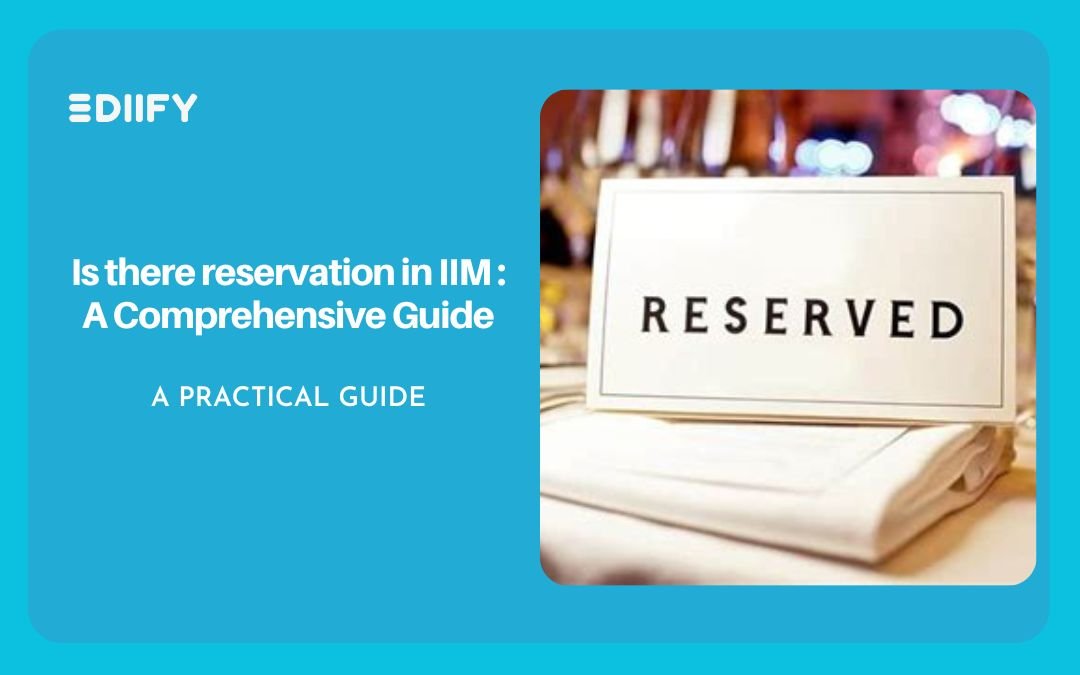Is There Reservation in IIM: A Comprehensive Guide
Is there reservation in IIM : A Comprehensive Guide. Reservation policies in educational institutions, including the Indian Institutes of Management (IIMs), play a significant role in promoting social justice, inclusion, and diversity. In this comprehensive guide, we will explore the reservation policies applicable to IIMs, including the categories eligible for reservation, the percentage of seats reserved, and the impact of reservation on admissions.
Understanding Reservation Policies in IIMs
Categories Eligible for Reservation
Reservation in IIMs typically applies to candidates belonging to:
- Scheduled Castes (SC)
- Scheduled Tribes (ST)
- Other Backward Classes (OBC)
- Economically Weaker Sections (EWS)
- Persons with Disabilities (PWD)
These categories are identified based on government guidelines aimed at addressing historical injustices and promoting equality of opportunity.
Percentage of Seats Reserved
The percentage of seats reserved for each category varies among IIMs and is subject to change based on government regulations. As per the prevailing norms, SC, ST, OBC, and EWS candidates are eligible for reservation up to a certain percentage of the total seats available in each program.
Impact of Reservation on Admissions
Promoting Diversity
Reservation policies in IIMs contribute to the creation of a diverse and inclusive learning environment by providing opportunities to candidates from underprivileged and marginalized backgrounds. This diversity enriches classroom discussions, fosters cross-cultural understanding, and prepares students to navigate a globalized business landscape.
Ensuring Representation
Reservation ensures that students from historically disadvantaged communities have access to quality education and representation in premier management institutions. It addresses systemic barriers and empowers individuals to pursue their academic and professional aspirations irrespective of their socio-economic background.
Implementation of Reservation Policies
Adherence to Government Guidelines
IIMs adhere to the reservation policies prescribed by the Government of India and respective state governments. They follow transparent and merit-based admission processes while ensuring compliance with reservation norms.
Merit-based Selection
While reservation provides a level playing field for candidates from diverse backgrounds, admission to IIMs remains primarily merit-based. Candidates are evaluated based on their academic performance, entrance exam scores, work experience, extracurricular achievements, and interview performance, among other criteria.
Conclusion
Reservation in IIMs reflects a commitment to social equity, inclusion, and diversity in higher education. By providing opportunities to candidates from marginalized communities, reservation policies contribute to the democratization of education and the empowerment of historically disadvantaged groups. While reservation may influence the composition of student cohorts, it does not compromise academic standards or dilute the quality of education. Instead, it enriches the learning experience by fostering a vibrant and inclusive academic community. Aspiring candidates should familiarize themselves with the reservation policies of IIMs and approach the admission process with an understanding of its broader social significance.





